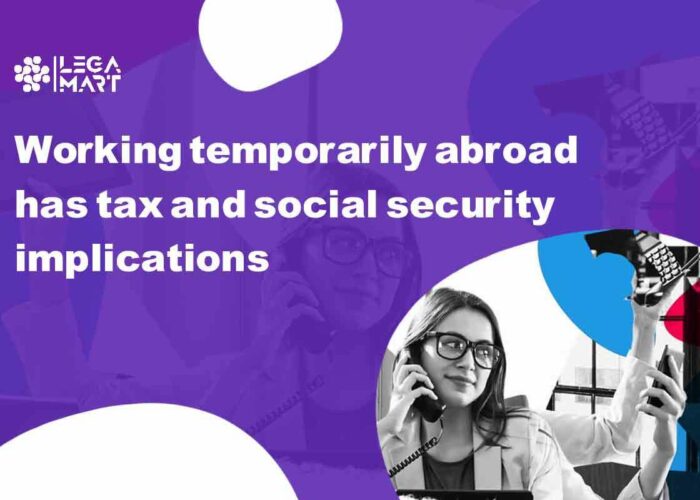Introduction
According to the UK Office for National Statistics (ONS) 2023 reports, 44% of UK workers engage in remote work, comprising 16% as full-time remote workers and 28% as hybrid workers. About 58% of employers extend remote work options to all eligible staff, with 1 in 4 UK workers adopting a hybrid work week. Furthermore, 80% of company directors and leaders have permitted remote work since 2020. In 2022, remote workers constituted 30% of the UK workforce. Additionally, a YouGov poll indicated that 57% of British workers desire the flexibility to work from home. Furthermore, a McKinsey survey in 2023 found that 87% of employees offered remote or hybrid work expressed willingness to accept it.
When lockdown provisions were imposed at the height of the pandemic, the use of technology-enabled office staff to work productively from home, the number of employees looking to extend their vacations and work remotely has increased in the aftermath of the pandemic, raising concerns for company tax departments about whether employees working abroad are subject to working remote tax implications in the UK. The large-scale shift to hybrid working for employees occurred in a matter of years, and, unsurprisingly, the tax system has not kept up with these changes.
The working remote tax implications in the UK or abroad is scrutinized more closely as the Office of Tax Simplification, an independent adviser to the UK government, launched a consultation into how businesses are adapting to the rise of hybrid and remote working. A popular misunderstanding is that an employee hired and paid by a UK business is only taxed in the UK on their earnings.
In fact, unless a double taxation agreement protects the employee, the employee’s earnings may be subject to income tax in the country where they perform their duties. The first step is to consider where the employee is a tax resident and whether the UK and other countries have a comprehensive double tax treaty.
In general, no tax should be due in the other country if an employee remains a UK resident and the days spent in the other country do not exceed 183 days in a prescribed 12-month period. Other conditions apply, and the employer should review the terms of the applicable double tax treaty. Longer-term remote working arrangements, or employees working in a country with which the UK does not have a comprehensive double tax treaty, will almost certainly result in tax being due in the other country, even if the employee’s earnings remain subject to UK tax.
A variety of income tax scenarios can arise as a result of overseas remote working arrangements. Some of the most frequent are listed below:
| Income tax outcome | When this outcome may arise |
| The employee remains subject to UK tax only on their earnings | Where the remote working period is short-term (i.e. less than six months) and the employee is protected by a double tax treaty |
| The employee remains subject to UK tax but is also subject to tax in the other country (with a foreign tax credit claimed in UK) | Where the remote working period is medium-term (i.e. more than six months) but not long enough for the employee to break UK residence |
| The employee ceases to be subject to UK tax, and only tax in the other country is due | Where the remote working arrangement is long-term such that the employee moves out from UK residence and acquires residence in the other country |
| The employee is subject to foreign tax and is also subject to UK tax (with a foreign tax credit claimed in the other country) | Where the remote working arrangement is long-term but the employee performs some workdays back in the UK (e.g. short business trips) |
Host country rights over taxing income
The host country holds primary taxing rights over the income earned by any employee working physically within its borders. However, a double tax treaty (DTT) between the UK and the host country can potentially exempt the employee from income tax under specific conditions.
In navigating such tax scenarios, attention to detail becomes crucial for businesses to avoid unexpected financial burdens or reputational damage.
Beyond this threshold, the employee might not be classified as a tax resident in the host country, according to the DTT. Individual circumstances, aligned with each country’s domestic law, can influence this status if the employee is a tax resident in both the UK and the host country.
The 183 day rule
The 183-day rule is a common provision in many UK double tax treaties. It safeguards both the employee and employer from foreign jurisdiction employment tax obligations when the employer is not physically present in that country for 183 days or more and a business in that country does not bear the employment cost.
Working Remote Tax Implications in the UK
Working temporarily abroad has tax and social security implications

From a UK perspective, unless the expected duration of the stay is so long that it may affect tax residency, the UK employer should continue to deduct income tax under the Pay As You Earn (PAYE) system in accordance with the employee’s PAYE code, even if the employee is temporarily working abroad. Furthermore, the employer should continue to deduct and pay employee National Insurance Contributions (NICs).
If the employee becomes a tax resident in the host country, income tax may be due
To begin, the host country has primary taxing rights over the employee’s employment income earned while physically working in that country. However, if the UK and the host country have a DTT, the employee may be exempt from income tax in the host country if certain conditions are met, including that the employee is not a tax resident in the host country.
According to the double taxation treaty (DTT), the employee’s residence status is determined by their personal circumstances and whether the number of days they spend in the host country over a 12-month period (however briefly and for whatever reason) exceeds 183 days.
The UK has DTTs with the vast majority of countries, including all 27 EU member states and the majority of the world’s major economies. In practise, this means that a short stay abroad in many locations will not subject the employee to host country income tax.
Importantly, employees who have already spent time in the host country during the same 12-month period (for example, visiting family) may reach the 183-day threshold sooner than previously thought.
Furthermore, the full details of the conditions can vary from DTT to DTT (particularly the period over which the 183-day test must be satisfied), and even if the DTT applies, the employer and/or employee may still have obligations in the host country. (For example, the employer may need to register with local authorities as an employer and/or report on the income that is being paid to the employee.). As a result, it is critical to understand the local situation.
If the employee is subject to tax in the host country but continues to be a UK tax resident, they will be subject to UK income tax on their worldwide income but should be able to claim credit for some or all of the tax they pay in the host country. They will, however, be required to complete the necessary tax declarations, which could be a complicated process.
There are n issues with remote jobs, especially related to taxation, processing time, or risk and fraud. If you are considering being involved in remote jobs, then there are ways to manage these payment issues that can help you sail through your remote employment.
Local social security to remote worker
It is necessary to treat social security as a distinct entity from income tax. In the event that you are not subject to taxation in a foreign country, you may still have an obligation to make social security contributions there.
Additionally, even if you are taxed abroad and not in the UK, you may still be responsible for UK social security contributions (National Insurance).
In the event that you are required to make social security contributions abroad, probably, your employer will also have an obligation to pay employer’s social security in that country. If an employer located abroad has a place of business, is present, or resides in the UK they may have a responsibility to make National Insurance contributions, an employer is generally considered present or resident if their company’s registered office is located in the UK, even if no business activities take place there.
However, just like the double tax agreements, a social security agreement may offer the same protection for social security contributions, either bilateral or multilateral agreements between the UK and the host country.
For example, the European Economic Area (EEA) countries and Switzerland have a multilateral social security agreement.
Therefore, it is important to assess whether there exists a bilateral or multilateral social security agreement between the UK and the country in which you intend to work and whether that agreement protects you from social security obligations in that country.
It is worth noting that if you are relocating to Switzerland or any of the EEA countries, the coordinated social security regulations will apply to relocations that commenced before 31 December 2020 from the UK.
If you are relocating for the first time from 1 January 2021, the regulations for EU countries are governed by the terms of the new UK-EU protocol on social security coordination. However, these regulations are only applicable if it is not feasible to stay in the UK National Insurance system if the remote working agreement is projected to last beyond two years.
Tax Rebate for Homework Expenses
Employers can currently make a tax-free payment of £6 per week to employees who work from home under a home working arrangement to cover additional household expenses. However, this is usually only available if you are forced to work from home and not doing so voluntarily. During the coronavirus pandemic, Her Majesty’s Revenue Customs (HMRC) relaxed these requirements, allowing employees to work from home under any circumstances.
If the employer does not make these payments, an employee may claim tax relief in the same circumstances as if the employer payment were non-taxable. This is possible through HMRC’s online service. This is achieved by claiming tax relief for additional expenses incurred as a result of working from home on an individual’s self-assessment tax return, online, or over the phone.
Provisions for Reimbursments for Employees

Last year, legislation was also introduced that confirmed there is no tax charge on reimbursements to an employee for obtaining home office equipment in order to enable an employee to work from home during the pandemic.
Travel Expenses Reimbursement
The rule for this relief to be available is that any travel from an employee’s home to their ‘permanent workplace is classed as a ‘ordinary commute’. Regular commuting does not qualify for travel expenses.
However, because many employees want to continue working from home, the lines between where an employee’s ‘permanent workplace’ is may become blurred. Because an employee may be able to claim travel expenses for anything other than a ‘ordinary commute’, employers must consider the implications of employees working from home on a more permanent basis. Travel expenses are generally allowable when an employee begins their workday at home and then travels to a meeting.
Remote Working Overseas
Employees travelling abroad to second homes or long-term vacation rentals and continuing their employment from an overseas country have also increased as a result of the pandemic. There are significant tax implications to consider here, not only for the employer, but also for the employee, depending on the number of days spent outside of the UK. It is recommended that any employee considering working abroad, even for a short time, seek advice both in the UK and in the overseas country. Even if an employee’s duties are ‘linked’ to their UK employment, there may be tax implications in the foreign country.
Frequently Asked Questions
Do I need to pay taxes if I work remotely in the UK?
Yes. If you work remotely in the UK, you are still liable to pay tax in the UK your income.
Do I need to pay taxes in both my home country and the UK if I work remotely?
It depends on the tax laws of your home country and the UK. Some countries have Double Taxation tax treaties with the UK to avoid double taxation. It is recommended to consult a tax professional to determine your tax obligations.
Conclusion
An employee’s tax position will generally not change if they are working from home and move within the UK, unless they move to or from Scotland. Such a move could have tax implications because the Scottish government has power to set a different rate of income tax from the rest of the UK. If an employee lives in Scotland for a longer period than anywhere else in the UK during a tax year, they will be liable for Scottish Income Tax. However, it is an employee’s responsibility to inform the tax authorities if they move to or from Scotland and their tax code will be adjusted automatically, so the employer does not have to take action in this situation.
When a UK employee works remotely from another country, the situation becomes more complicated. The basic rule is that employers must continue to calculate and deduct income tax from all payments made to UK employees temporarily working abroad under the ‘pay as you earn’ tax system. In addition, such an employee may be subject to income tax in the host country.
Allowing an employee to work abroad inadvertently creates a permanent establishment in that country for corporate tax purposes. An employer may also be required to continue deducting social security contributions from employees’ pay, depending on the country in which they work and the length of time they will be working in that country.
To learn how you as an employee can save on Working remote tax implications in the UK as per your contractual arrangements with the company, feel free to get on a consultation with our LegaMart lawyers and choose among the 2000+ lawyers from all around the world. Further, to learn about working remote tax in Germany and working remote tax in the US check out our LegaMart blog.




